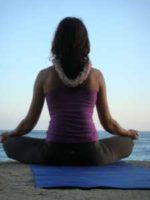More on Ophthalmology on MedicalResearch.com
MedicalResearch.com Interview with:
Robert Ritch, MD, FACS
Shelley and Steven Einhorn Distinguished Chair
Professor of Ophthalmology
Surgeon Director Emeritus and Chief, Glaucoma Services
Founder, Medical Director and Chairman, Scientific Advisory Board
The Glaucoma Foundation
Jessica V. Jasien MEn
Einhorn Clinical Research Center
The New York Eye and Ear Infirmary of Mount Sinai
New York, NY 10003
Medical Research: What is the background for this study? What are the main findings?
Response: Glaucoma is the leading cause of irreversible blindness in the United States and elevated intraocular pressure (IOP) is the most common known risk factor for glaucomatous damage. At the current time, IOP is the only modifiable risk factor for which treatment has a proven effect on preventing or slowing the progress of the disease.
The story behind this study goes back to 1980, when we saw a 45-year-old woman with severe damage from normal-tension glaucoma, which then was thought to be a disease of the elderly and also thought to be rare, which we now realize was erroneous. The causes of normal-tension glaucoma were also poorly understood. It turned out on questioning that this particular patient had been performing yoga and standing on her head for 20 minutes a day for 20 years. We measured her IOP in this position and it rose from 15 mmHg in the sitting position to 60 mmHg. When measured lying flat, it was 30 mmHg. We measured everyone working in the department standing on their heads and the IOP roughly doubled in each of them. This was our first inkling that marked changes in IOP could result from changes in body position.
The background for this study came from the lack of knowledge of IOP rises during yoga inversions, other than the headstand position. We looked at four common inverted yoga positions in
glaucoma patients and healthy patients who were all experienced in practicing yoga. The four positions tested were downward facing dog, plow, legs up the wall, and forward bend. Each position showed a direct increase in IOP immediately assuming the yoga position, however the IOP dropped once assuming the seated position after two minutes in the yoga position. The most significant increase in IOP was seen during the downward facing dog position. IOP of each study participant was taken seated (baseline), immediately assuming the yoga position, which was held for two minutes, again at the two minutes of the yoga position, immediately in the seated position following the yoga position, and again after 10 minutes in the seated position. Each position was tested once in this order of IOP measurements.
(more…)
 The first step that you should take to finding inner peace is to practice yoga and meditation regularly. Yoga and meditation can give you the chance to slow down and reflect, as well as to clear your mind of the worries and negative thoughts that are concerning you. Not only this, but deep breathing is also an important aspect of both yoga and meditation as this can help you to ground yourself and to reconnect with the world around you.
(more…)
The first step that you should take to finding inner peace is to practice yoga and meditation regularly. Yoga and meditation can give you the chance to slow down and reflect, as well as to clear your mind of the worries and negative thoughts that are concerning you. Not only this, but deep breathing is also an important aspect of both yoga and meditation as this can help you to ground yourself and to reconnect with the world around you.
(more…)





